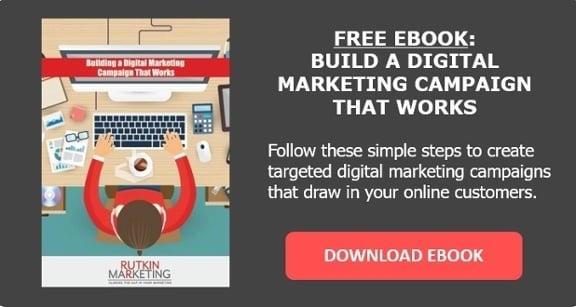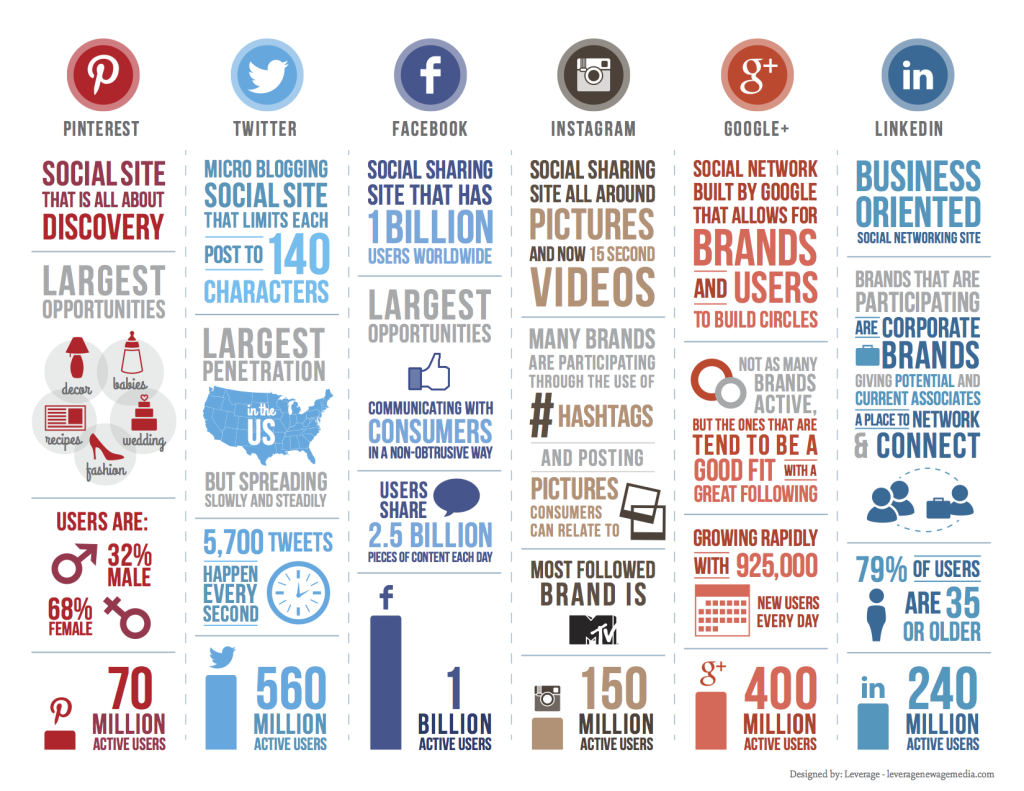4 Digital Marketing Tools for Your Small Business

When done well, Digital Marketing Tools are the most effective way to reach your prospects to promote your small business. But the first step to building ANY digital marketing strategy is taking a step back and understanding the “why” behind your efforts.
Too often, I see clients make the mistake of building a strategy around a specific digital marketing tool or tactic without considering what they’re really trying to accomplish.
The thing is that investing in digital marketing tools without having a strategy is like buying a car and not knowing how to drive. In a previous article, I talked about the critical steps in building a digital marketing strategy that works. The key to success depends on many variables, including:
- What type of business are you in? B2B or B2C?
- Are you a new business or have you been around for a long time?
- What type of customers are you going after?
- How do buyers seek and purchase the types of products/services you offer?
- Who is your competition?
But with so many digital marketing tools available, how do you know where to start?
Here are some questions to help determine which digital marketing tools to use:
- What platforms do your customers and potential customers live on?
- Are they likely to look online for answers to their questions, or would they rather be communicated via more traditional marketing methods?
- What channels are best to reach and engage with your audience?
- How frequently will you communicate via those channels?
- What tasks need to happen to execute successfully?
- How will you measure success?
Now that you’ve assessed your target market and the platforms they live on, let’s talk about each digital marketing tool in more detail.
Here is a quick overview of four digital marketing channels for your small to midsized business.
Email Marketing
Email marketing is the tried and true digital marketing channel with an average return of $38 for every $1 spent. To start, ask: What is your ultimate goal? Is it to educate? Is it to buy something? Call you? Click on a link? Register for something? Get to know you better? Whatever your goal is, make sure you only have one and that it’s an obvious.
Another tactic is sending regular newsletters. When done well, newsletters are ranked as the most effective way of delivering email content to achieve campaign objectives. The key is to focus on segmenting the target audience based on purchase habits.
Web & Search Engine Optimization (SEO)
SEO is worthless if you don’t have a good website. If you target the right keywords, your website can be the #1 performer on your sales team. But SEO is more than just optimizing your web page on your website. You also need rich-keyword content.
How? Keyword research tools like Google Keyword Planner to check search volume (aim at 1,000 searches per month for relevant keywords) and to create 10x content using images, videos and many relevant outbound links (like I have in this article). Every piece of content should have a purpose. For example, it could be an article for your target keyword you want to rank or a long tail variation of your main keyword which supports your top content. Then push content through your social platforms.
Google Ads and Pay-Per-Click (PPC)
To give your Website and SEO a boost, you can utilize Google Ads PPC. Most of my clients who do it will tell you that paid advertising offers a good ROI when you start at the beginning – and build from an informed foundation of critical insights.
To pin down an objective conclusion about the strategy, you need to understand the costs per click too. For example, the price per click on a Google search ad can vary depending on what industry you’re in, sometimes up to $50 or more per click. If done wisely, however, there are ways to help build equity with a paid advertising campaign to help you rank in search results and make sure your link gets seen by prospective customers.
When getting started, you need to define your goals. Are you seeking increased inquiries or purchases? Do you want to build your brand? Or are you struggling to rank in search results for particular keywords? Then, create a pilot to test, monitor, and adjust the campaign as you gain insights. Results vary by business and industry. So be patient and commit to at least 6-12 months to start benchmarking results.
Social Media
Most companies already have a company LinkedIn page, Facebook page, Instagram page, and maybe a Twitter handle, but your competition does too. What you truly need is a strategy that allows you to engage on the platforms your customers live on – thus meeting your set goals and objectives.
Every business, every industry, and every buyer is different with unique factors that affect how effective your marketing strategies will be. The key is to research your best customers to see which channels they use and engage with the most. Next, be sure to spend some time understanding the different social channels to know which one makes the most sense for your business. From there, build an audience of followers and post your content. (Also, check out this infographic on the best times to post and tweet on social media.)
Successful Digital Marketing Strategies Depend on Execution
Let’s say there’s a marketing strategy you have identified that has a good ROI, but you have no idea what you’re doing or how to do it. Would you expect to yield a positive result? Of course, not! The success of ANY marketing strategy strongly depends on its execution. Investing in any of these strategies – Email, Website, SEO, PPC and Social Media – without first identifying the “why” and committing to the time and resources in creating the right strategy is pretty much guaranteed to waste your time and money.
Are You Ready to Build a Strategy That Works?
Let’s start by discussing your marketing needs. Contact us today! We’ll meet with you to learn more about your business, your challenges and your goals. Together, we can determine if it makes sense for us to continue the conversation and explore if we are a good fit in working with each other.


